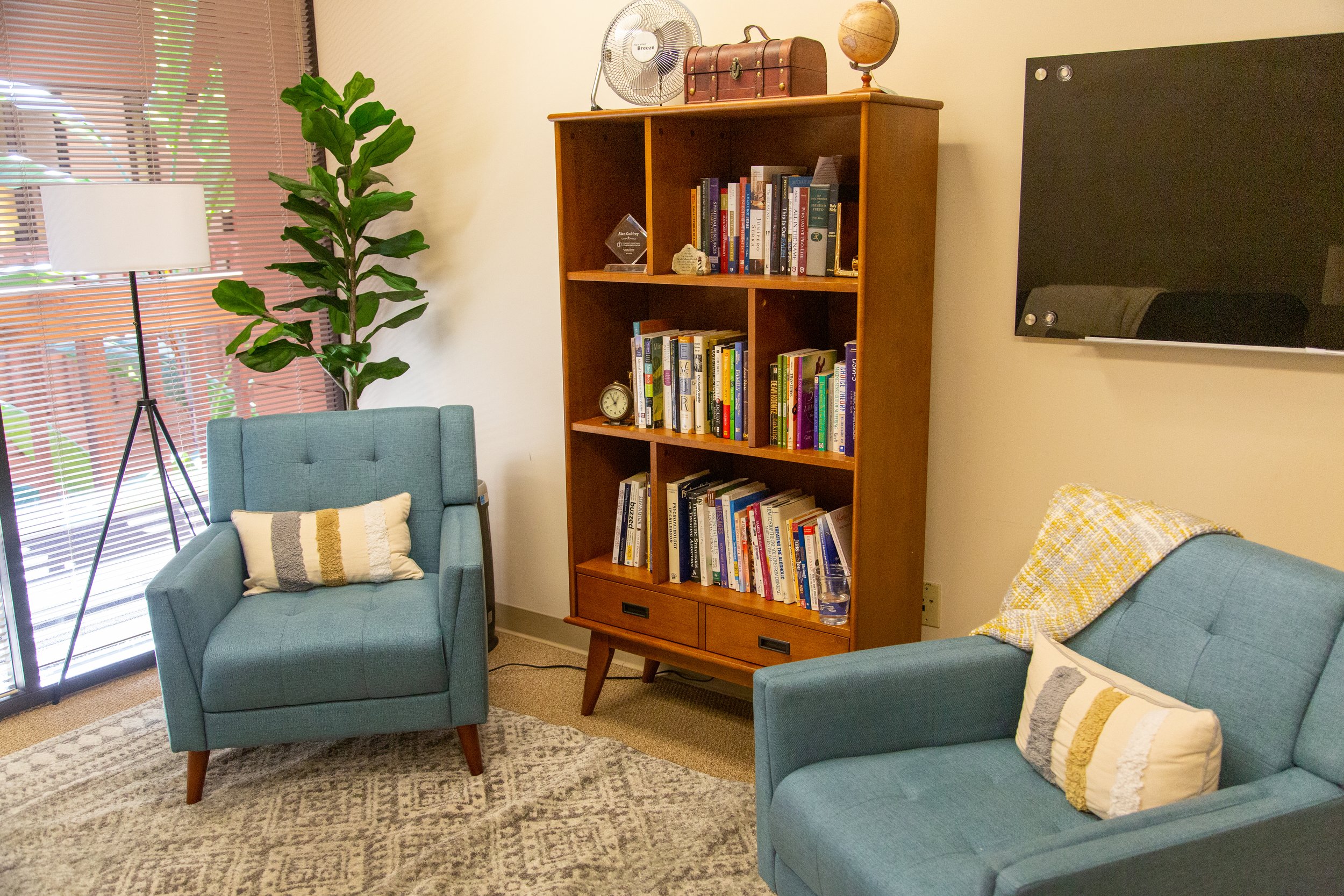Our Recovery Groups
The Sexual Recovery Program of CPCC is designed to provide people with addictions/compulsions and their families with the tools and support to find hope, healing, and lasting recovery from sexual addiction and compulsive behaviors. Through individual and group therapy, people learn how to reclaim their lives, reestablish trust, and restore hope in their future. Effective and long-lasting recovery is more than temporarily stopping the behavior. Effective therapy addresses the underlying issues in creating a permanent, long lasting recovery.
To accomplish this, SRP is divided into 2 levels of intensive group therapy. We strongly suggest that participants also participate in individual and/or couples therapy, along with a 12-step SAA program. Highly trained and licensed therapists lead each group and type of counseling. Workbooks such as Facing the Shadow, along with other materials and exercises, are used throughout the program and are included in the price. The program is divided into the following categories:
PHASE I: FOUNDATIONS GROUP
The FRG is designed for the person with the addiction/compulsions, and the partner when applicable. It is a gender-specific group that covers the education and structure to obtain and maintain sobriety. We usually recommend meeting with an individual therapist as well.
This group teaches tools and principles that will help participants better understand the underlying causes of addiction. The basic structure is established for both individuals and couples for long-term, life-changing recovery. The primary focus is to educate, heal shame, finish the workbook Facing the Shadow by Dr. Patrick Carnes. When clients are well-informed about the underlying issues that influence unhealthy behaviors, they become empowered to take a more proactive approach to recovery and life.
The addicts get to the root of their addiction, become accountable for their actions and sobriety, and form a close-knit support group with the other group members. The partners focus on deep recovery work from the trauma they have experienced. This safe environment and group support is vital as they support one another through recovery.
Participants will complete tasks and assignments and hold one another accountable. These tools and principles lay the groundwork required for lasting recovery. The workbooks the Foundations group focus on providing a deeper look at denial, the addiction cycle, fantasies and objectification, relapse prevention, and healthy living. Participants should stay in group until they have established a solid sobriety, are implementing an effective treatment plan – including a network of support – and have a detailed understanding of their addictive system which includes healing shame and coming out of denial. Partners in the Foundations group take a deep look at their own issues and learn to recognize co-dependent behaviors and establish healthy boundaries.
PHASE II: PILLARS GROUP
Participants in Pillars are required to attend and complete Foundations group must be completed before participating in Pillars.
This advanced group addresses the issues that underlined the addiction in the first place, such as faulty core beliefs, trauma, and abuse. Once the addiction has been stopped and the underlying issues have been addressed, healthy lifestyle changes are reinforced in order to keep the addiction from reappearing. For couples in the program, this is the time to practice their new lifestyle and new way of relating to each other. Members put into practice all of the identity and boundary training they have received throughout the first two phases. Once again, expect to work hard and expand beyond your comfort zone. This is where the true lifestyle change occurs to ensure lasting recovery.
The addicts in the final phase of treatment have demonstrated a solid sobriety from the sexual acting out behaviors and are ready to do the more delicate work of healing shame, attachment, and other emotional issues that the addiction covered up. Once the underlying issues have been addressed, healthy lifestyle changes are reinforced in order to keep the addiction from reappearing in the future. Men also learn how to improve their relationships with their wives, children, extended family, co-workers, and friends. Most women have moved past the crisis of betrayal in Pillars and are now able to work on healthy emotional expression, healing trauma, decreasing shame, and improving their most important relationships. Women in the third phase rediscover their best selves and build patterns for long-term healthy living.
For both men and women, Pillars is a chance to practice living life without the constant threat of the addiction and helps each of them secure the gains from the two previous phases.
Pillars participation averages 18 months.
Learn more about compulsive sexual behavior.
-
What is sex addiction?
Sex addiction or compulsive sexual behavior is a pattern of adverse behaviors that a person struggles to stop, despite their disruption of a person’s life, relationships, or values.
-
Am I a sex addict?
Sex addiction comes with a variety of symptoms including out of control sexual behavior, the inability to stop sexual experiences despite negative consequences, and more.
-
Are there other resources available?
There are many accessible resources to aid in sexual recovery. We compiled a list of some of our favorite resources so that you can gain more assistance quickly.

